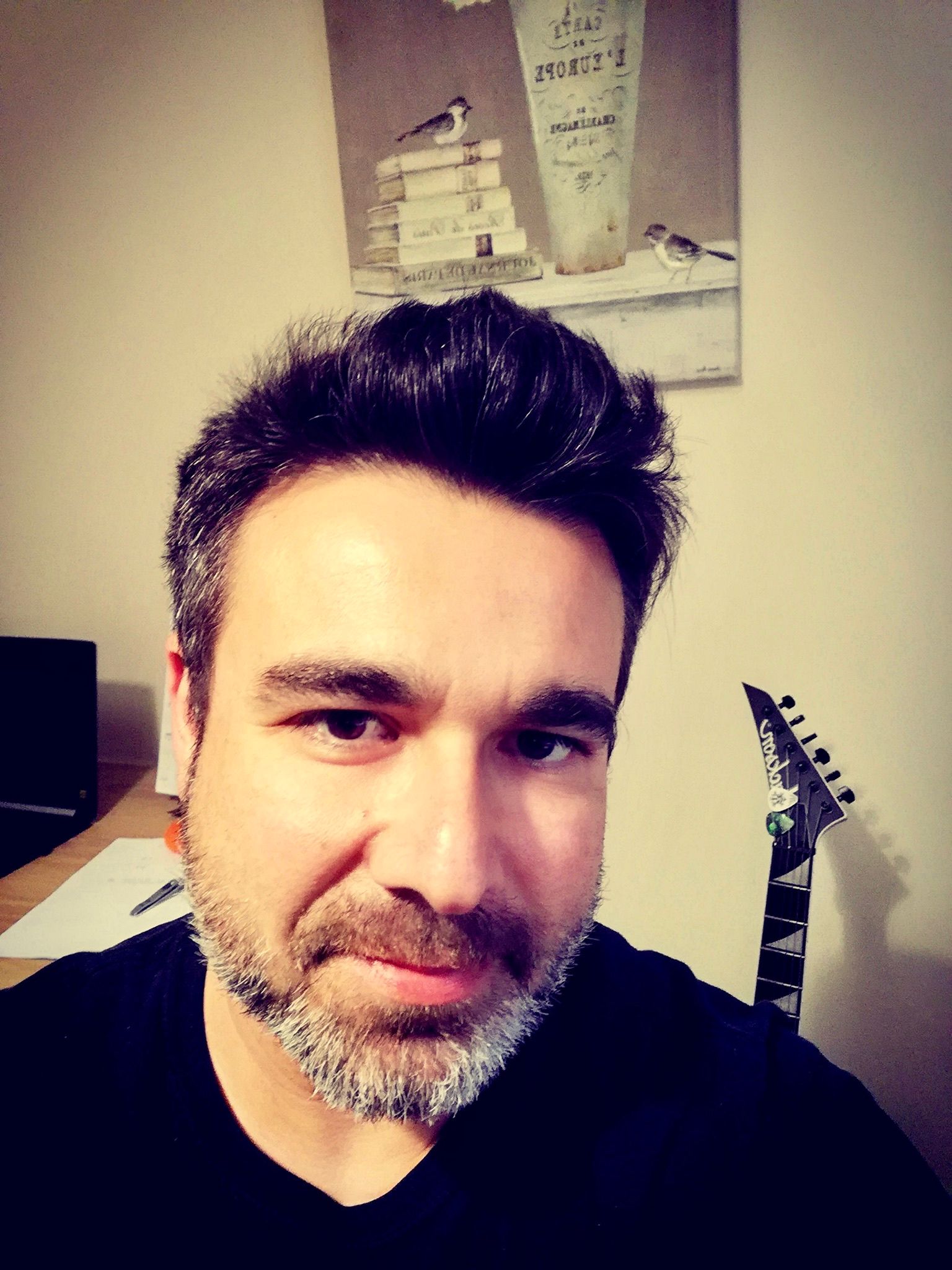
Chief Product & Technology Officer Labbe, a fingerstyle bassist with a background in physics and engineering, came up with the idea after experimenting with a pick to achieve different tones. Not different enough, as it turned out.
“I wanted to get a bit more of a gritty, crunchy sound on my bass,” Labbe says. “I wondered about creating piks with ridges, and therefore causing multiple strikes on the strings. A flat pick can’t do that.”

DePietro, a guitarist well-versed in finance and complex technology, dug into researching if such pick designs were on the market. “I read practically every pick-related patent that exists,” he says. “More than 1,200 of them. What we found is that the majority have something to do with the grip of the pick or the use of material. There weren’t really any that focused on the tip of the pick, or modifying it.”
Using a 3D printer to create the visual he had in mind, Labbe crafted his first design in October of 2019. “I printed my first pick the day after that,” he says, “and it worked, but wasn’t as complex as the later ones have become.” That fact is the direct result of Acoustik Attak’s subsequent sophisticated injection molding process, which was required to produce quality plectrums featuring such technological advances.
"I believe every guitar player inherently has something unique about their playing. They just have to identify what makes them different and develop it." - Jimmy Page
“I knew ridges were the only way to create a completely new sonic pick design,” Labbe says, “and that they would change the sound waves. And that those would be more complex, bring out harmonics, and alter frequency ranges. I just didn’t know exactly how it would sound.”
Through early trial and error and exhaustive research by Labbe and DePietro, plus a clinical team of musicians and sound engineers, things came to fruition relatively quickly.
“Mark’s original samples were convincing enough to move forward,” says DePietro. “Once we developed something that was playable, we outsourced the production to have the picks made of durable nylon to test them in the right settings. We spent a lot of time researching harmonic science and figuring out exactly what we were doing to the strings to produce these effects.”
Acoustik Attak’s team of clinicians includes New York-based guitarists Brian Goss and Ed Grossman, and Southern California-based producer and sound engineer Jason Mariani. Collectively, their credits include work with the group Mumford & Sons, guitarists Joe Bonamassa and Steven Van Zandt, and singer Kenny Loggins.The guitarists experimented with the new Acoustik Attak designs, eventually recording with them and sending the results to Mariani for his spectral analysis. Goss, for one, described going back to standard flat picks as dull by comparison after trying the Attak and Ambush models.
“To describe Brian’s reaction,” DePietro says, “it was like a kid breaking out of training wheels on his bike and then pulling a wheelie two hours later.”
“We ended up refining our designs based on their feedback,” adds Labbe.
The CPTO and CEO also took additional hands-on, and ears-on, approaches.
“I was experimenting by playing through my amps;” Labbe says, “playing with the tones through my audio interface to speakers and headphones.”
“And I have a pretty magical high-end sound system,” adds DePietro, “with Marantz equipment and Meridian speakers. That helped us move more quickly and fine-tune the products.”
In addition to Jones, primarily a bassist who alternated between finger-style and a pick with Led Zeppelin and, more recently, Them Crooked Vultures, Labbe had specific guitarists and bassists in mind when he came up with the pik designs.
“The day I had the initial idea, I was listening to Tool,” he says. “And I thought about how piks like these would sound in Justin Chancellor’s hands. I was also thinking of guitarist Adrian Belew (King Crimson, David Bowie, Talking Heads), because he’s a gear-head who would likely find ways to use the piks that nobody else would think of.”
Labbe and DePietro already have numerous designs for more customized piks and beyond, so Acoustik Attak will have a long rollout of new products.
“The first releases will be pik-related,” DePietro says, “but we have several other accessory ideas we’ll look to patent and release. The next two designs will likely be an aggressive, hardcore bass pik and a sine wave pik for guitarists or bassists.”




